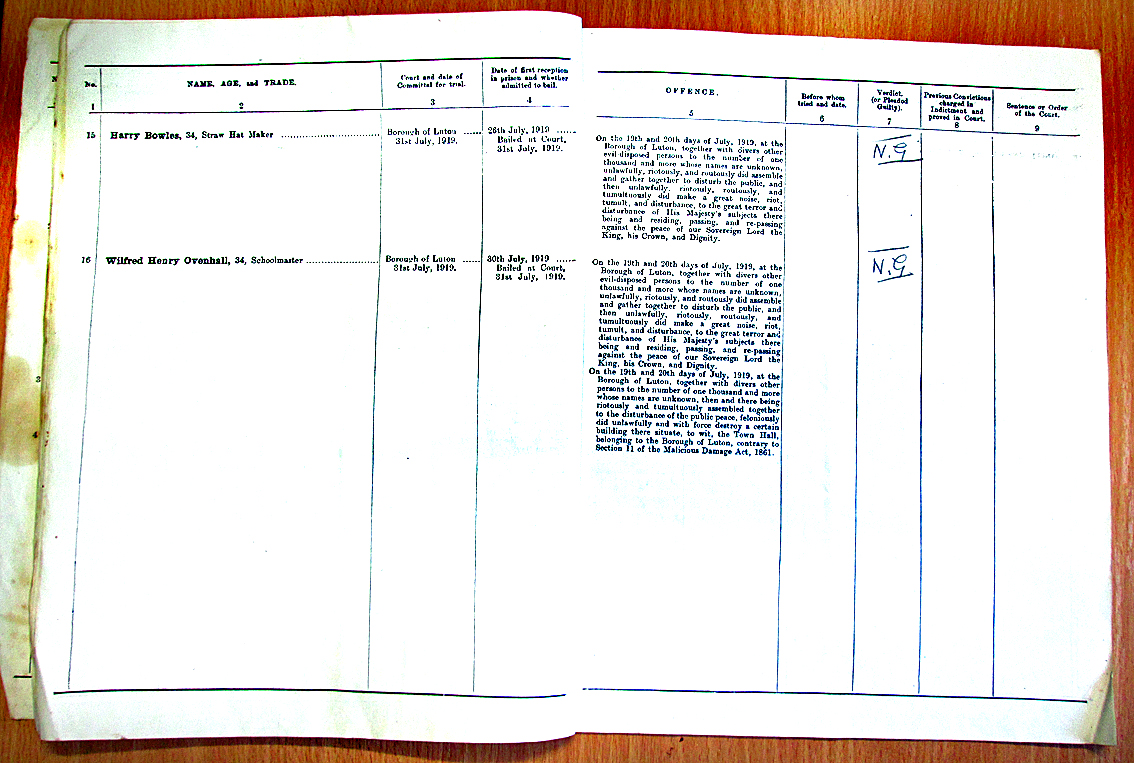
- Assizes record courtesy of Mr John Gillespie, grandson of Insp Fred Janes.
Harry Bowles, aged 34, straw hat maker, of 56 Tavistock Street, Luton, was charged that: “On the 19th July 1919 together with divers other persons to the number of one thousand or more, unlawfully and riotously great riot and disturbance to the terror and alarm of His Majesty’s subjects there being, and against the peace of our sovereign Lord the King, his Crown and Dignity.”
MAGISTRATES COURT
Brought before Luton magistrates on July 22nd, 1919, Bowles said he was a 1914 volunteer and went to the Dardanelles. He admitted speaking to the prisoner Gore to speak up, but denied that he himself urged the crowd to fetch anybody out of the Town Hall
Cross-examined, Bowles said he heard Gore say something about pensions, but heard no one say anything about fetching out the Mayor.
Bowles said he did not see any signs of the crowd getting angry or dangerous. Re-examined, he said he had no complaint or grievance, and about 4 o'clock went quietly home to tea.
At a later hearing, Bowles was said by Det-Sgt Arthur Bacon said he heard prisoner shouting: “Fetch 'em out!” He asked Bowles to be quiet, but he took not notice. Pc Horace Frost corroborated.
Bowles reserved his defence was committed for trial at the Assizes on bail in the sum of £10 subject to a surety of similar amount.
AT THE ASSIZES
Evidence given at the magistrates courts hearing was repeated, with Det-Sgt Bacon saying that while prisoner Gore was addressing the crowd about his pension being insufficient, Bowles shouted: “Go on, Billy, give it to the ------ ------. Fetch 'em out.”
In answer to a defence comment, Det-Sgt Bacon said that although a lot of people were shouting at the time, he knew Bowles very well, was close to him and was sure he used those words. The prisoner was very quiet as a rule.
Constable Frost, who was also present, corroborated. In cross-examination, he said it was quite impossible to be mistaken about the actual words used. He add that Bowles had a good character.
The Judge asked whether the prisoner was an ex-serviceman and was told he had served in the Army for four years and five months.
Bowles was found not guilty and discharged. Judge Greer said: “The jury have taken a lenient view in this case, and I think rightly, because there was room for doubt over your conduct. I should advise you to keep out of these affairs in the future.”

